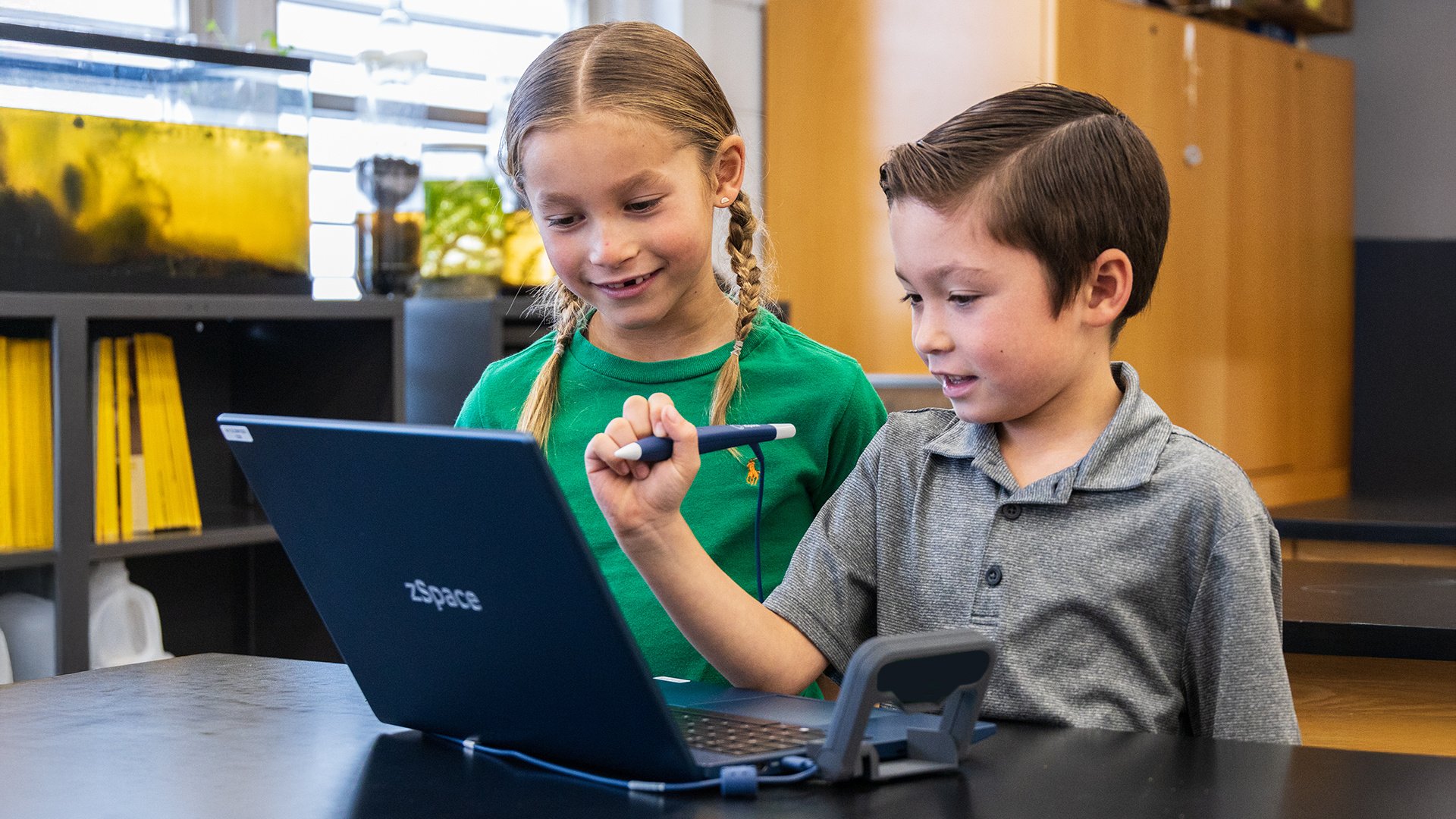
January 24, 2025
Integrating Career Awareness into Elementary School
Integrate career awareness into elementary school subjects with zSpace Imagine. Inspire young learners and enhance academic understanding.
In today’s rapidly changing world, early exposure to career options is becoming increasingly important for young learners. Research shows that children begin to form ideas about their future careers as early as age seven. However, with the pressure on schools to prioritize math and reading proficiency—often driven by standardized testing—there is little time left to explore career awareness activities. The good news is that educators don’t need to choose between meeting academic standards and introducing students to the world of work. By integrating career awareness into subjects already taught, schools can inspire curiosity and help students see the relevance of their education while enhancing their mastery of core subjects.
The Case for Early Career Awareness
Studies indicate that students who engage in career awareness activities early on develop higher motivation to learn and a better understanding of how academic skills apply to real-world contexts (Yavuz, 2022). In addition, students exposed to career-related learning in elementary school are more likely to be engaged in their studies and consider a broader range of career options. These activities help combat the phenomenon of "career stereotyping," where children limit their aspirations based on gender, socioeconomic background, or cultural expectations.
The Career to Academics Connection
One of the biggest challenges in implementing career awareness activities is finding time within an already packed school day. However, by embedding these activities into core subjects, educators can achieve multiple goals simultaneously. This integrated approach not only saves time but also enhances student understanding of academic concepts by providing real-world context.
For example, a math lesson on fractions can double as an introduction to culinary careers, with students taking on the role of chefs to calculate recipe measurements and prepare a menu for a restaurant. In a science lesson on forces and motion, students can step into the shoes of aerospace engineers, designing and testing paper airplanes to solve a problem like maximizing flight distance or stability. These role-playing scenarios not only immerse students in the professions but also require them to apply their mathematical and scientific skills to solve real-world challenges, fostering deeper engagement and understanding.
Here are some additional examples of how this can be done effectively:
Math
"When am I ever going to use this in my real life?"
Math concepts are often taught without context, leading students to question their purpose. When teaching measurement with a ruler, place students in the role of a carpenter, requiring them to accurately mark wooden boards to construct a wall for a home.
Science
Science lessons naturally lend themselves to career exploration in fields like healthcare, environmental science, and technology. When teaching about the human body, for example, educators can introduce students to careers in medicine and healthcare.
Reading and Writing
Language arts lessons can incorporate career awareness by encouraging students to write from the perspective of different professionals. For instance, a writing assignment might ask students to imagine they are journalists covering an important event or authors creating a story about a scientist’s groundbreaking discovery.
Social Studies
Social studies lessons often focus on community roles, government functions, and historical events, making them an ideal platform for career awareness. When learning about local government, students can role-play as mayors, city planners, or public works officials, solving real-world problems like designing a new park or addressing traffic congestion.
Art
Art lessons provide an opportunity to discuss careers in design, animation, and fine arts. Students can apply their knowledge of design elements and principles by assuming the role of a graphic designer to market a new product.
Integrate Career Awareness with zSpace
In January 2025, zSpace released a new elementary school-focused solution named Imagine. This cutting-edge AR/VR platform immerses students in hands-on, interactive experiences that bring academic concepts to life while fostering career awareness. With zSpace Imagine, students can virtually step into the roles of professionals—like engineers, scientists, or healthcare workers—and tackle real-world challenges that integrate math, science, and problem-solving skills. Teaching human body systems? Transform your students into cardiologists for a day and explore a realistic, 3D model of the circulatory system.
The Imagine solution includes schools needs to be successful - hardware (with 3-year warranty), software (3 year subscription), teacher training, a library of standards-aligned teacher and student resources, and ongoing user support.
By sparking curiosity and providing meaningful context, zSpace Imagine empowers schools to inspire the next generation of thinkers, creators, and problem-solvers. Learn more about how zSpace Imagine can help your school achieve its goals by visiting zSpace Imagine for Elementary Schools.
Building a Foundation for the Future
Integrating career awareness into elementary school subjects is more than just a practical solution to time constraints; it’s an investment in students’ futures. By exposing young learners to a wide range of careers, educators can help them envision possibilities they might not have considered otherwise. This early exposure can inspire students to pursue their interests, set goals, and see the value of their education in achieving those goals.
As technology continues to advance, tools like zSpace will play an increasingly important role in making career exposure accessible and engaging for all students. By leveraging these resources and integrating career awareness into everyday lessons, educators can equip students with the knowledge and skills they need to succeed in a rapidly evolving world.
References
Yavuz, Olcay. “The Career Development Needs of Elementary School Students .” International Journal on New Trends in Education and Their Implications, vol. 13, no. 2, http://www.ijonte.org/FileUpload/ks63207/File/4_the_career_development_need_assessments_of_elementary_students.pdf.